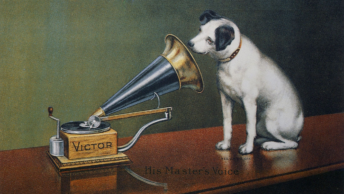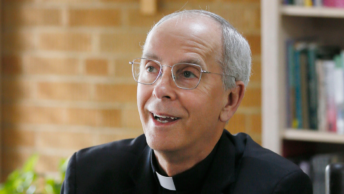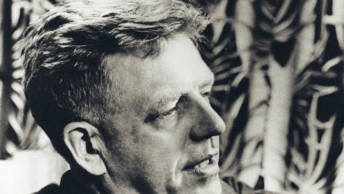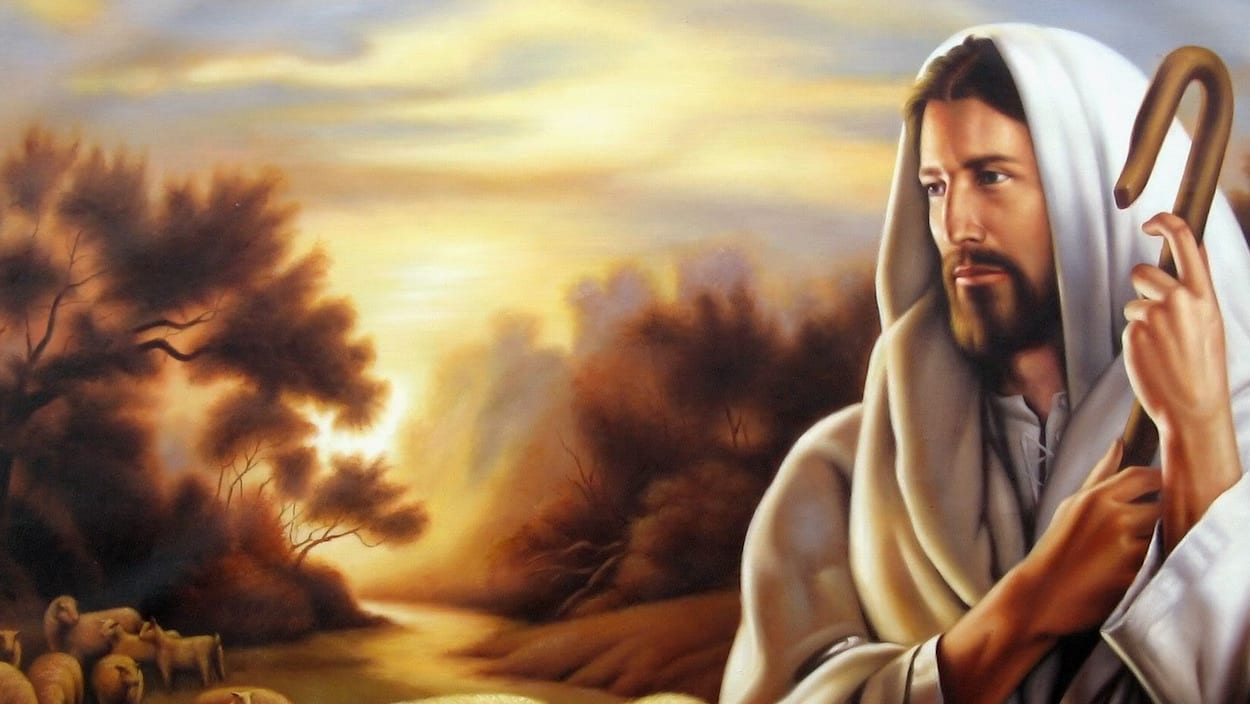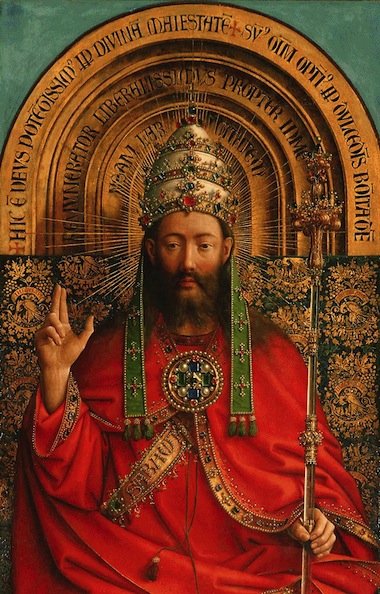
On this Feast of Christ the King, I wish to begin with two words spoken by the Prophet Daniel:
I saw.
If you recall from that first reading (Dan 7:13-14), “I saw” is followed by a litany of visions and descriptions regarding the Son of Man. He is One coming whose peoples, nations, and languages will serve Him. He is One coming whose dominion will be everlasting and never taken away. He is One coming whose kingship shall never be destroyed.
In Psalm 93 and Revelation (1:5-8), Daniel’s observations are ratified while still other important images are given us to place our arms around. The Lord is One who is robed in splendor; whose throne stands firm; and whose decrees are worthy of our trust. But as we venture closer to Jesus, we see more than images. As the throne of God comes nearer, we eventually see the Divine face and have an opportunity to look into His eyes. What do we see?
A king.
How many of us have ever seen a king? When I was a child, I remember my mother telling me about the American actress, Grace Kelly, who through marriage, became a princess. But a king? For me, kings are from the past. For scholars of the Reformation or American Revolution: Henry VIII or George III. And yet, according to Wikipedia, there are presently 44 sovereign nations throughout our world that have monarchs serving as head of state. Certain ones that come to mind are the King of Jordan, King of Spain, and the King of Sweden. Today, much speculation surrounds who will become the future King of England. Will it be Charles or William? Here in America, I have read that certain presidents may have visioned themselves as king. And down in Graceland? Well, there once lived a king of a different sort. However, in keeping our eyes focused upon kings, we know that we can Google their images and be reminded that they occupy large palaces, wear the finest threads, and sit upon elaborate thrones. Truly, these men satisfy what we have in mind when we think of—kings.
Given all of this “royal” discussion, it is clear that we have been conditioned to believe that kings should look and behave in a certain way. And not just in our time. In the Old Testament, we know that the dominant vision of the coming Messiah was One who would not only look the part, but play it as well. But despite having descended from Davidic lineage, Jesus did not look like a king. Nor did he play the part of a stereotypic king. He ate with sinners. His associations were suspect. And while moving from town to town, He even performed miracles on the Sabbath— after which He proclaimed Himself as Lord of the Sabbath. But mostly, Christ the King embarrassed Jewish authorities over their insistence upon following the “Law” rather than promoting one that would change hearts.
In the end, these religious leaders simply had enough.
And so, in John’s Gospel (18:33-37) we find an unusual dialogue that develops between Jesus and Pilate where Pilate asks Jesus whether he is the King of the Jews. Jesus responds:
You say that I am a king. For this I was born, and for this I came into the world, to testify to the truth. Everyone who belongs to the truth listens to my voice.
In his 1925 Encyclical, Quas Primas, Pope Piux XI proclaimed the Feast of Christ the King and noted that:
Nations will be reminded by the annual celebration of this feast that not only private individuals but also rulers and princes are bound to give public honor and obedience to Christ. It will call to their minds the thought of the last judgment, wherin Christ, who has been cast out of public life, despised, neglected and ignored, will most severely avenge these insults; for his kingly dignity demands that the State should take account of the commandments of God and of Christian principles, both in making laws and in administering justice, and also in providing for the young a sound moral education. (#32)
Today, while Christ the King is increasingly marginalized within our culture, you and I have been given a Divine task. After hearing His Word and receiving Him in the Eucharist, we are called to boldly proclaim Him to others.
He is King! He is Lord! He is the great I Am!
In recalling those two words from Daniel, I saw, may our eyes of faith see Him in every moment of our lives.
Next week, we begin our journey toward Bethlehem. In walking there, may these questions be front and center in our minds:
Is Jesus Christ our Lord and Savior? Is Jesus Christ our constant companion? Is Christ the King the center of our universe?
If not, then who (or what) is our king?



